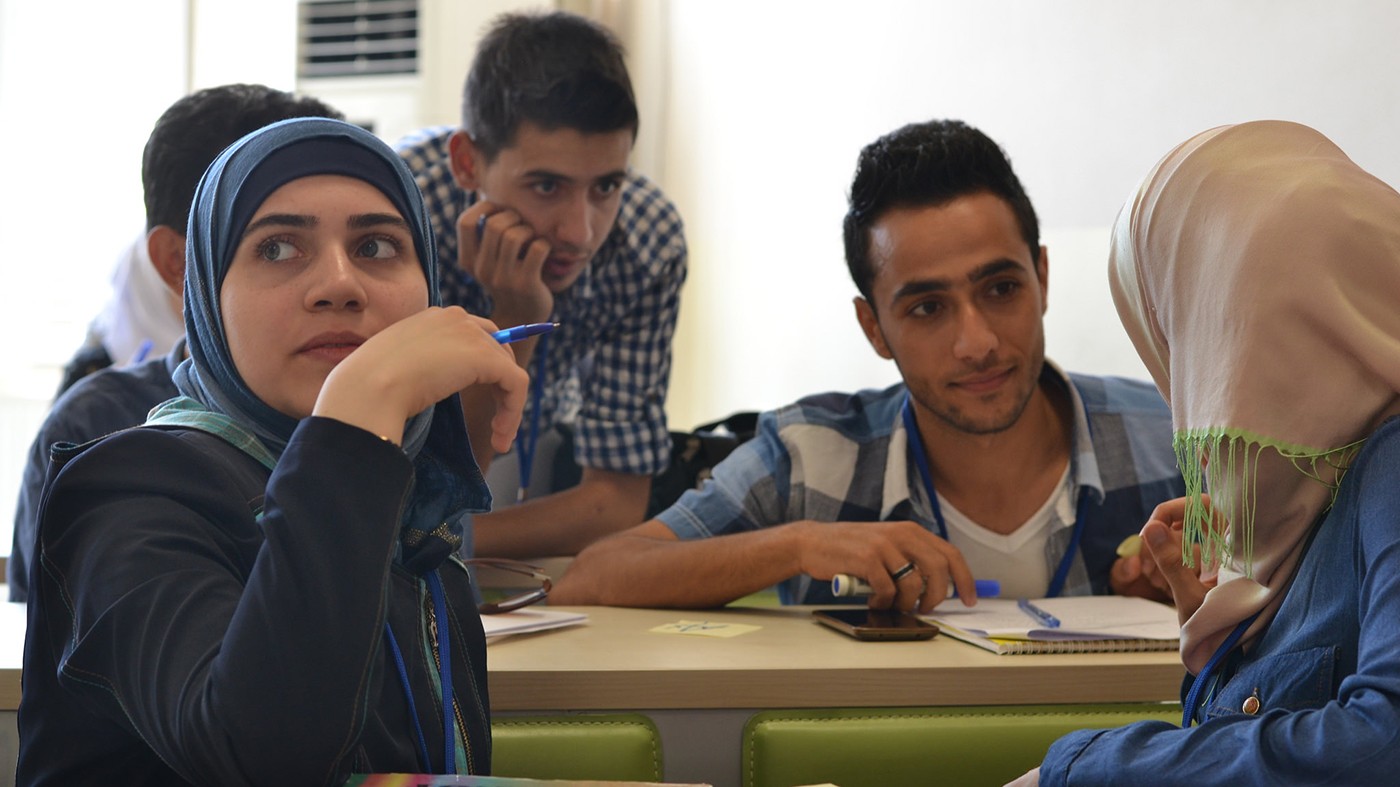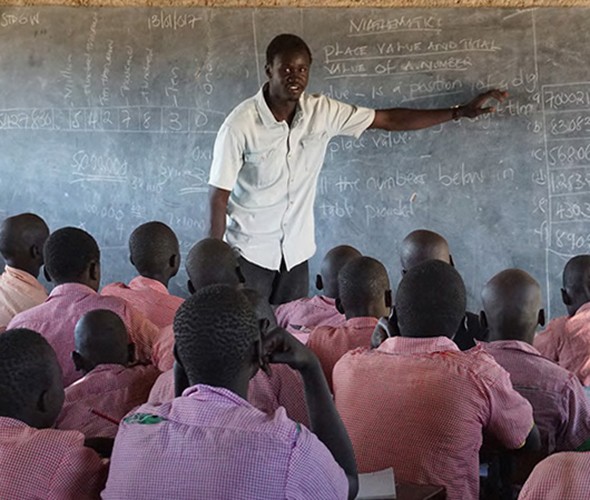First University-Wide Scholarship Program for Displaced Students

More than 70.8 million people around the world have been forced from their homes by violence, persecution and other human rights violations. Almost 26 million of these individuals are classified as refugees by the United Nations. Only 3 percent of them will ever enroll in a college or university.
To address this crisis, Columbia is announcing a Scholarship for Displaced Students. Administered by the Columbia Global Centers, it will provide support for up to 30 students annually to receive tuition, housing and living assistance while pursuing undergraduate and graduate degrees across all 18 Columbia schools and affiliate institutions. This University-wide scholarship is unprecedented in Columbia’s history and is the first such initiative in the world.
“We are very proud of the Columbia Scholarship for Displaced Students,” said University President Lee C. Bollinger. “The program sends a powerful message about the role that colleges and universities should be playing to help young people whose educations have been disrupted because they have been forced to flee violence and persecution in their home countries.”
Scholarship for Displaced Students
This program represents a monumental undertaking for Columbia, one that has the potential to transform global education for displaced students. It represents a significant investment of resources and cuts across schools, disciplines and demographics. It also builds on work that schools like the Mailman School of Public Health, School of Social Work, Law School, School of International and Public Affairs, Teachers College and the Earth Institute are doing on issues related to forced migration.
The scholarship began as a program for Syrian refugees at The Tamer Center for Social Enterprise at Columbia Business School. The motivation for its founder, Professor Bruce Usher, was personal. After World War II, his Montreal-based grandparents had taken in a Jewish teenager who had fled Austria during the Nazi occupation. “He went on to finish high school, go to college and enjoy a successful career as an accountant,” Usher recalled. “He always said that living with my family allowed him to get an education, which changed the course of his life.” As Usher read devastating news reports of people fleeing war-torn Syria in 2015, he remembered that story and thought of ways that his institution, Columbia University, could help.

In the spring of 2016, Usher created an independent study for students at Columbia Business School. The assignment was to determine if a scholarship program for Syrian student refugees was feasible, and the response from Columbia students was highly supportive. That summer, Usher took a small group of students to Jordan and Lebanon to gather more information. They came back and presented their findings to Columbia administrators with a proposition: if the schools would pledge tuition support for the refugee students, they would raise funds for cost-of-living expenses.
The first school to sign on was Columbia’s School of General Studies. The late Peter Awn, then Dean of the school, took less than 20 minutes to agree to sponsor two students. The Business School, the School of International and Public Affairs and Columbia College followed shortly thereafter. The 2016 presidential elections introduced new hurdles, but the schools stood firm in their resolve to take part. In all, seven students were admitted to Columbia through the program.
By 2018, the program had outgrown its home at the Business School. Usher approached Safwan Masri, Executive Vice President for Global Centers and Global Development, who agreed to take ownership of the initiative. He then vastly expanded its reach and imprint.

“Bruce identified an opportunity that aligned perfectly with Columbia’s University-wide priorities,” Masri explained. “It’s a program that will have a real impact on the lives of talented people facing overwhelming obstacles by helping them gain access to one of the world’s great institutions of higher education.”
Sumar Frejat, an Iraqi-Syrian national who was one of the first scholarship recipients, understands the stakes better than most. In 2012, he was forced to abandon his medical studies in Aleppo, Syria, and flee the country. He applied for asylum in the United States, settled in Houston and began working at Starbucks. He wanted to work in medicine, but he did not have a degree or access to funding. He became friendly with a doctor who had heard about the Columbia scholarship and suggested he apply.
“It was like a dream getting my acceptance letter,” Frejat recalled in an interview. “My focus, my energy, everything changed.”
Frejat is now studying neuroscience and behavior at Columbia’s School of General Studies and plans to go to medical school. He believes deeply in the program and is thrilled that it will continue and expand.
“The Syrian students I know through the program are very special, and I saw how this opportunity changed their lives,” he added. “There are more special students out there that deserve the same chance.”
Editor's Note: The program is open to students from anywhere in the world. They must be foreign nationals who are either internally or externally displaced with refugee status, or those who have either received asylum or submitted an application for asylum in the United States. The scholarship includes full tuition and cost-of-living expenses for the duration of terms necessary to complete the degree. Applicants must apply to and be accepted by one of the participating schools, each of which has its own admissions criteria and application deadline. More information can be found on the Columbia Global Centers website.